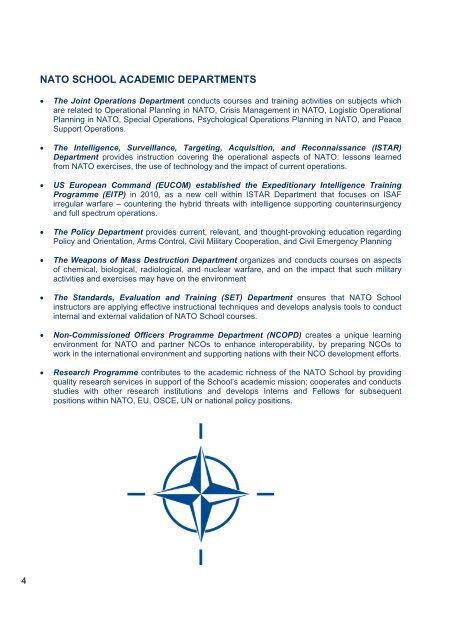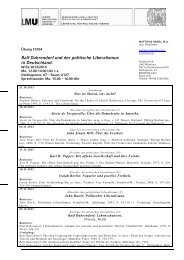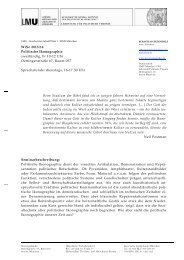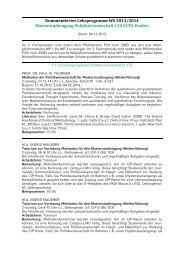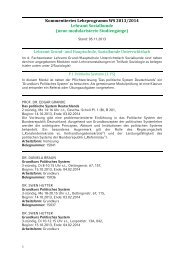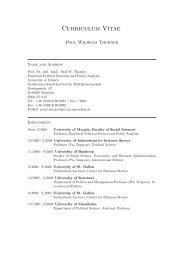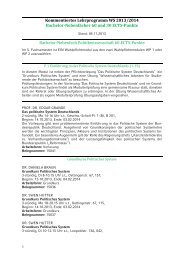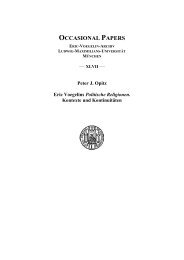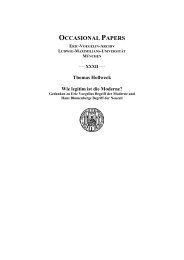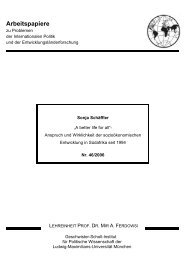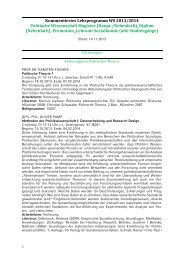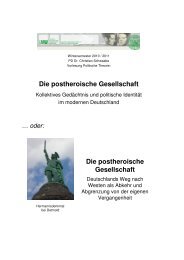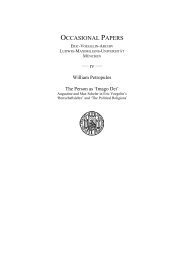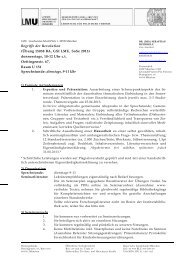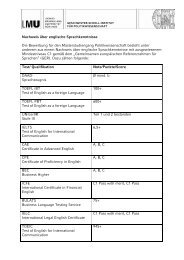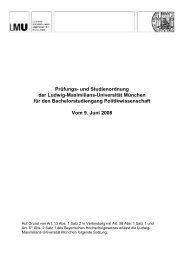NATO School Oberammergau - Geschwister-Scholl-Institut für ...
NATO School Oberammergau - Geschwister-Scholl-Institut für ...
NATO School Oberammergau - Geschwister-Scholl-Institut für ...
You also want an ePaper? Increase the reach of your titles
YUMPU automatically turns print PDFs into web optimized ePapers that Google loves.
<strong>NATO</strong> SCHOOL ACADEMIC DEPARTMENTS<br />
<br />
<br />
<br />
<br />
<br />
<br />
<br />
<br />
The Joint Operations Department conducts courses and training activities on subjects which<br />
are related to Operational Planning in <strong>NATO</strong>, Crisis Management in <strong>NATO</strong>, Logistic Operational<br />
Planning in <strong>NATO</strong>, Special Operations, Psychological Operations Planning in <strong>NATO</strong>, and Peace<br />
Support Operations.<br />
The Intelligence, Surveillance, Targeting, Acquisition, and Reconnaissance (ISTAR)<br />
Department provides instruction covering the operational aspects of <strong>NATO</strong>: lessons learned<br />
from <strong>NATO</strong> exercises, the use of technology and the impact of current operations.<br />
US European Command (EUCOM) established the Expeditionary Intelligence Training<br />
Programme (EITP) in 2010, as a new cell within ISTAR Department that focuses on ISAF<br />
irregular warfare – countering the hybrid threats with intelligence supporting counterinsurgency<br />
and full spectrum operations.<br />
The Policy Department provides current, relevant, and thought-provoking education regarding<br />
Policy and Orientation, Arms Control, Civil Military Cooperation, and Civil Emergency Planning<br />
The Weapons of Mass Destruction Department organizes and conducts courses on aspects<br />
of chemical, biological, radiological, and nuclear warfare, and on the impact that such military<br />
activities and exercises may have on the environment<br />
The Standards, Evaluation and Training (SET) Department ensures that <strong>NATO</strong> <strong>School</strong><br />
instructors are applying effective instructional techniques and develops analysis tools to conduct<br />
internal and external validation of <strong>NATO</strong> <strong>School</strong> courses.<br />
Non-Commissioned Officers Programme Department (NCOPD) creates a unique learning<br />
environment for <strong>NATO</strong> and partner NCOs to enhance interoperability, by preparing NCOs to<br />
work in the international environment and supporting nations with their NCO development efforts.<br />
Research Programme contributes to the academic richness of the <strong>NATO</strong> <strong>School</strong> by providing<br />
quality research services in support of the <strong>School</strong>’s academic mission; cooperates and conducts<br />
studies with other research institutions and develops Interns and Fellows for subsequent<br />
positions within <strong>NATO</strong>, EU, OSCE, UN or national policy positions.<br />
4


